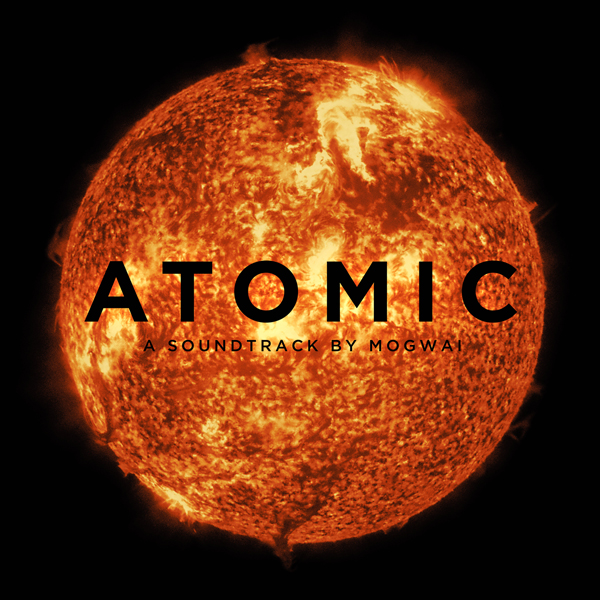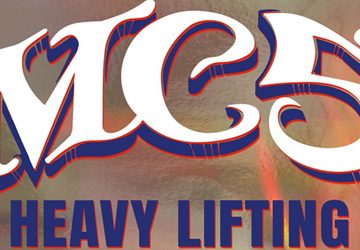Scotland’s Mogwai has been a noteworthy act in the Post-Rock sub-genre, a style that continues to evolve since their formation in 1995 and never gets old. In a genre that is heavily focused on instrumentals where many bands including Sigur Rós, Explosions in the Sky, and newer acts This Will Destroy You and God is an Astronaut branches out independently with unique styles of their own, Mogwai’s aesthetic has been known for their simplified distorted guitar riffs, haunting basslines, and hypnotic keyboards. A stirring emotion has bled out through their instrumentation, similar to how a piece with lyrics would traditionally convey. Mastering such harmonious compositions with a distinct amount of simplicity has seduced listeners for over twenty years with a list of studio records, a ton of EPs, and extensive touring.
During August of 2015, BBC aired a special in memory of the seventieth anniversary from the drop of the atomic bomb on Hiroshima, Japan. Mark Cousins’ Documentary, Atomic: Living in Dread and Promise, was a film that emphasized on the benefits and destruction of nuclear capabilities. Mogwai created the soundtrack for this film and became intrigued with the project and the intensity of the story. The band then reworked the original soundtrack to release a ninth studio album independent from the film. On April 1st, 2016, Atomic, via Rock Action Records, released, making it the follow-up from 2014’s Rave Tapes. Atomic is the first album composed without long running guitarist John Cummings, who departed from the group in late 2015, leaving the band as a quartet with Dominic Aitchison (bass), Stuart Braithwaite (guitar), Martin Bulloch (drums), and Barry Burns (guitar/keyboard/flute). The album elaborates on the horrifying journey of the atomic bomb, where it also dives into the harsh realities on the fragilities of life.
Opening with “Ether,” it cinematically chimes in; a transcendent introduction carrying out the theme of beginnings similar to a sunrise on the start of a day. It dramatically moves and continues to engage the listener as the pace remains tranquil between the blending sound of the guitar and keyboards being intertwined together. Despite having no lyrics, the story progresses with “SCRAM,” which is scientifically defined as a shutting down of a nuclear reactor due to constant insertion of control rods. What that can mean musically is spiraling chaos as this song dives in with mystical and dark intensity. Carrying out a steady beat similar to scraping one’s fingertips on a chalkboard, it, however, sounds entirely different but similar in a story sense such as a Horror film, to torture and excite the listener.
Flowing along next with “Bitterness Centrifuge,” it demonstrates a variety of musical densities. Despite moving with a similar tone, the emotion tends to build, showcasing a dramatic separation. The album shifts with the intense track of “U-235,” which stands for Uranium-235, an element that can sustain a fission chain reaction. This song is most likely written to showcase the discovery and actual build of the atomic bomb. Opening up with a panting-like ring, it progresses, becoming faster and heavier. At points, the listener could hear a heartbeat growing as this piece alone displays multiple layers including stories and interpretations.
Interestingly, the next piece, “Pripyat,” haunts in as the actual name Pripyat comes from an abandoned city in the Ukraine. A city that was once a home for those who worked at Europe’s largest Power Plant, the Chernobyl Nuclear Power Plant. Emphasizing on the hidden brilliance, this album captivates as the dark undertones continue to creepily progress. It is the most aggressive song on the album, where the main melody intensifies.
Softening, as though it brings in sounds of despair, next is “Weak Force.” The keyboard elements carry signs of decay as it delicately moves in waves between the feeling of hope and loss. Stinging in next with horrifying emotion is “Little Boy,” as it continues with the expression of defeat up until the main melody chimes. Adding a sound similar to a cinematic climax, a few notes alone manages to leave an eerie ring to the listener’s ears. Slowing down with “Are You a Dancer” adds a few Jazz elements with the use of the slow bass movements. The combined use of strings softens the level of intensity that the previous tracks held.
The next, “Tzar,” is referred to a strong ruler or leader, but this specific Tzar could be geared towards the powerful Atomic bomb itself. The song sneaks in as though something evil, that is not clearly identified, is about to detonate. The acoustics sound as though there is a mysterious ritual occurring in the background. This all changes halfway in as a distorted guitar riff explodes, making it one of the strongest tracks of the album. There are a handful of elements in this piece where the listener would pick a new sound after each listen.
Concluding the album with “Fat Man” could leave the listener slightly complexed due to the song title itself. However, musically, it is the most depressing piece. It opens up with echoing keys on the piano as it fires off sounds of possible death and destruction. Musically, it showcases the deadness in the air as additional musical elements ignite. The song dramatically builds as it concludes the album on a haunting, shocking, and daring tone.
Atomic has demonstrated a new direction the band seems to be moving towards, which was noticed on Rave Tapes, heavily focused on the keyboard where earlier in their career the style was more guitar-driven. Despite the keyboard telling most of the story, Atomic held on to a few classic tones with its distorted guitar subtleties. A brilliantly composed album that Mogwai has proven impactful storytelling yet again, CrypticRock.com gives Atomic 4.5 out of 5 stars.







No comment